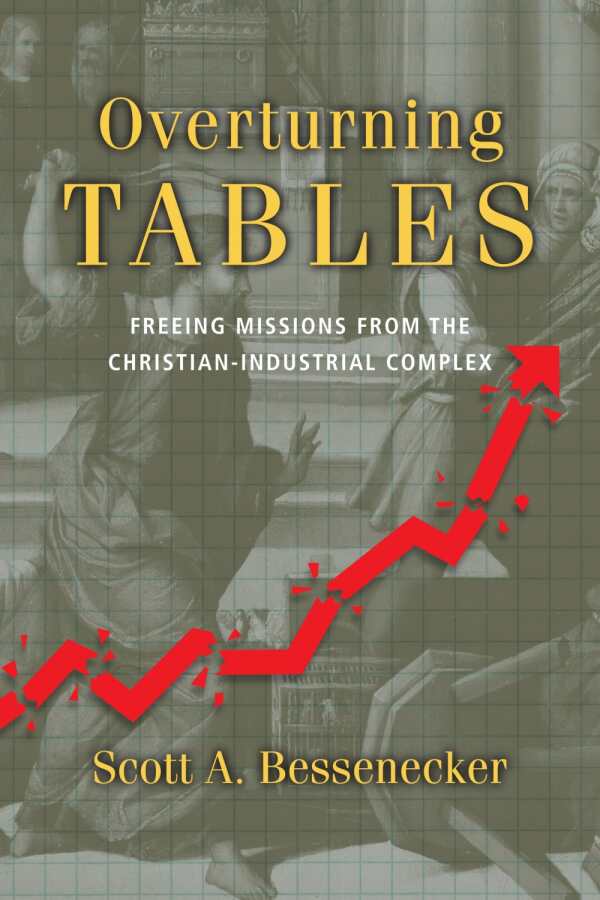Overturning Tables
Freeing Missions from the Christian-Industrial Complex
Bessenecker argues for a solution to the problem of Christianity’s conflict with modern capitalism and consumerism.
In Overturning Tables: Freeing Missions from the Christian-Industrial Complex, ministry leader Scott A. Bessenecker offers a solution to modern-day missions: Take out the corporation. Bessenecker, who serves as associate director of missions for InterVarsity Christian Fellowship, uses the Biblical account of Jesus overturning the tables of the moneychangers at the Temple to center his arguments against this era’s “capitalist mindset that has inserted itself into Christ’s church and its mission.” In today’s mission organization, he says, money drives the decision making. Only the wealthy can afford to go on missions, leaving many excluded. Bessenecker appears quite offended by what he calls evangelicals’ “need to defend unregulated capitalism” as a way of life.
Interestingly, Bessenecker excludes Catholicism from his views. This book is all about the Protestant mission culture of which he is a part. He also confesses to being a middle-aged white guy, the very demographic he targets with his arguments. “I have observed the greying of North American missionaries,” he writes, citing a few isolated sources but evidently ignoring all of the many churches who send young couples—even families with small children—into the mission field.
The book makes good points about the reliance on church attendance numbers rather than individual impact, about prosperity teaching, and the idea that “every Christian is meant to be rich and strong,” as well as about the ever-growing US megachurch that indulges this capitalistic approach. Anyone who’s ever been to a huge church in the South led by a Lexus-driving pastor sees that.
The text is intelligently written, though many of the chapters seem to say basically the same thing, despite their cute titles, like “From Profits to Prophets” and “From Convert to Cosmos.” The prologue, at twenty-eight pages, would serve better as a first chapter. The strength of the book’s overall position appears when the author paints a picture of an alternative to the corporate approach. Though he early on relates some accounts of devoted missionaries not part of this corporate culture, the real alternative comes later in the book. This is much more a sermon than an instruction manual.
Does the book convincingly expose a true evil here, in this modern-day businesslike approach to missions? Are mission organizations unsuccessful—not winning any souls, in other words—by adopting this approach? By managing stewardship responsibly, by making sure the work is done and funded, by ensuring the mission’s sustainability? The book makes its case clearly, and ultimately it’s for the individual missions leader to decide.
Reviewed by
Billie Rae Bates
Disclosure: This article is not an endorsement, but a review. The publisher of this book provided free copies of the book to have their book reviewed by a professional reviewer. No fee was paid by the publisher for this review. Foreword Reviews only recommends books that we love. Foreword Magazine, Inc. is disclosing this in accordance with the Federal Trade Commission’s 16 CFR, Part 255.

